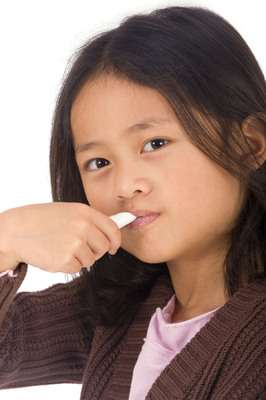- MENU
- HOME
- SEARCH
- WORLD
- MAIN
- AFRICA
- ASIA
- BALKANS
- EUROPE
- LATIN AMERICA
- MIDDLE EAST
- United Kingdom
- United States
- Argentina
- Australia
- Austria
- Benelux
- Brazil
- Canada
- China
- France
- Germany
- Greece
- Hungary
- India
- Indonesia
- Ireland
- Israel
- Italy
- Japan
- Korea
- Mexico
- New Zealand
- Pakistan
- Philippines
- Poland
- Russia
- South Africa
- Spain
- Taiwan
- Turkey
- USA
- BUSINESS
- WEALTH
- STOCKS
- TECH
- HEALTH
- LIFESTYLE
- ENTERTAINMENT
- SPORTS
- RSS
- iHaveNet.com: Recipes
Dr. Sue Hubbard

Children often lick their lips, leading to excessive chapping and redness. With lip balm, the child licks off the moisturizer rather than the skin
With winter upon us in full force, don't forget skin care and sun protection. Due to the drier air and the need to turn up the heat, it's important to protect your child's skin (and your own) and keep it from drying.
[ Related: Easy Solutions for Dry Winter Skin | What to Do About Dry Skin In Winter | Best Ways to Beat Winter Skin ]
It's not necessary to bath or shower every day in the winter. Try bathing your children every other day, and see if this helps with dry skin symptoms. Shorter baths and warm rather than hot water will also help prevent dry skin. Right after a bath, while a child's skin is still damp, apply a good moisturizer such as Cetaphil, Cerave, Vanicream or Aveeno (some of my favorites). Use a generous amount.
Dry air and heat also dries other parts of the body, including the nose and lips. To protect the lips, use a lip balm with sunscreen (at least SPF 15). Children often lick their lips and have excessive chapping and redness. This is called lip lickers dermatitis. It's best treated by bringing the "licking habit" to the child's attention (if they're old enough to understand the problem). Apply lip balm frequently so the child is actually licking off the moisturizer rather than the skin.
Cover the skin around the lips, too, if your child is licking that area. If the skin is really inflamed, you can use an over-the-counter steroid. Unfortunately, lip licking is a habit that takes a while to break. Just be consistent with moisturizing. You could even reapply lip balm once a child has gone to bed and the licking has stopped.
For an older child, get them their own stick of lip balm so they learn to reapply it throughout the day.
Nasal mucosa can also get dry, and the skin inside the anterior nares (the part just inside the nostril) may become irritated. As children often pick and rub at their noses, the skin inside the nostril can crack and allow bacteria inside. To help prevent infection, you can buy Polysporin (an over-the-counter antibiotic cream). Take a little bit on a Q-tip and put it in each nostril, just inside the tip. After applying, squeeze the child's nostrils together to help disperse the antibiotic. It's best to do this morning and night.
Bloody noses are also more common in the winter and may be prevented by using a saline nose drop and some Aquaphor or Vaseline inside the nose. I also like the brand Ayr Gel.
Sunscreen is not only for use in the summer.
Children who are outside in the snow require sun protection, too. When traveling to areas with higher altitude and snow, it's especially important to protect your children's skin (and yours). The reflection of the sun off of snow only makes the rays more intense, and liberal use of sunscreen on exposed skin is important. Throw a stick of sunscreen in your parka and reapply sunscreen throughout the day. Use a broad-spectrum sunscreen with both UVA and UVB protection. Neutrogena makes some excellent ones.
Lastly, when you tuck a child in at night, a cool mist humidifier in their room may help prevent dry skin and lips.
is a nationally known pediatrician and co-host of "The Kid's Doctor" radio show.
[ Related: Easy Solutions for Dry Winter Skin | What to Do About Dry Skin In Winter | Best Ways to Beat Winter Skin ]
Don't Forget Skincare and Sun Protection in Winter
Article: Copyright © Tribine Media Services